Our dogs often communicate using body language… but do we listen? Have a look at the examples below to see how our furry friends communicate with their owners and other dogs:
When Happy or Relaxed:
Let’s start with the body language dogs display when all is well. Nothing makes us smile more than seeing our dogs happy and enjoying life and sure enough, you’ll be able to spot this from their body language. Each signal listed below means that a dog is content and relaxed:
Play Bow
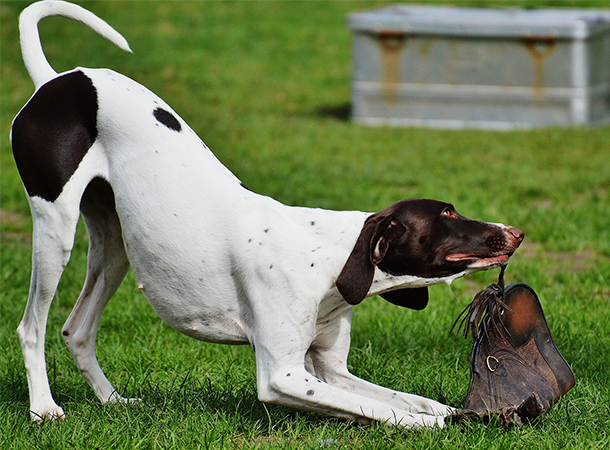
We all know this signal. A dog is inviting you or other dogs to play.
Relaxed Facial Expression
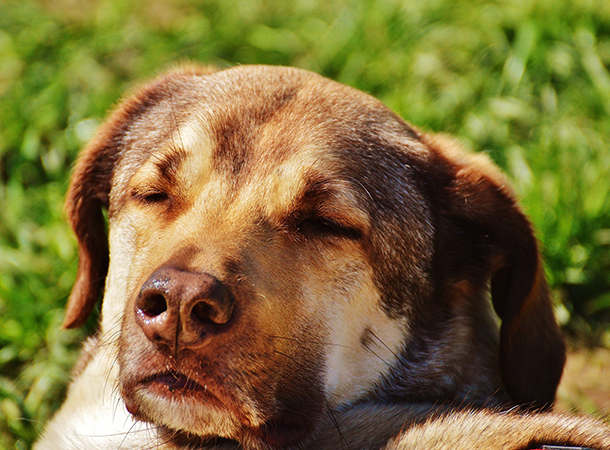
You can tell this dog is relaxed!
Rocking Horse Motion
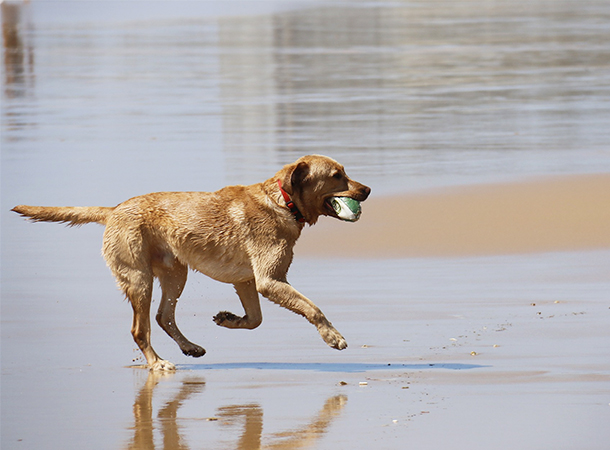
When playing, dogs move vertically, rocking back and forth like a rocking horse. Have you seen your dog do this?
Wagging Tail/Wiggling Bottom
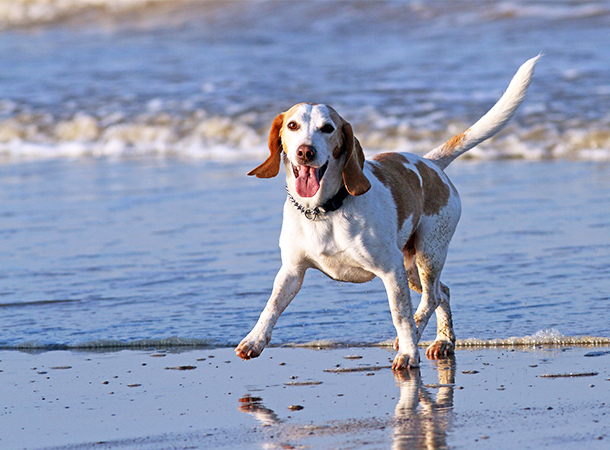
A tail wagging side-to-side or in a helicopter motion indicates a happy dog. A wiggly bottom does, too.
Happy Facial Expression

Mouth ajar and tongue sticking out. The dog in this photo is completely at ease, happy and relaxed.
When Stressed or Nervous:
When stressed and nervous, different dogs’ behaviour can vary. The following signs show how dogs attempt to relieve stress or alleviate potential threats:
Yawning

Though dogs do yawn when tired, they’re far more likely to do so when nervous.
Lip Licking
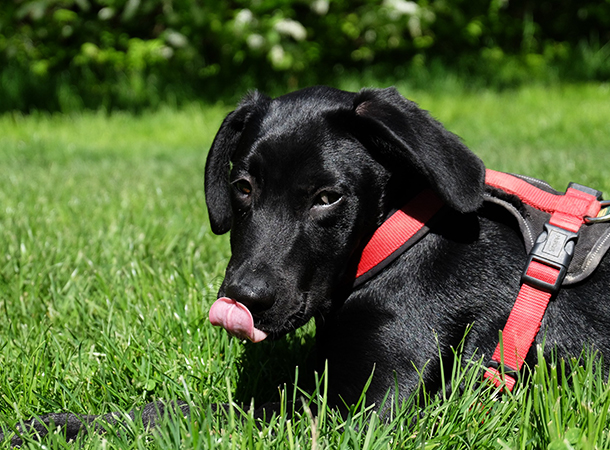
Dogs lick their lips or flick out their tongues when feeling nervous or stressed.
Piloerection (Hackles)
This is where the hackles – on the back of a dog’s neck – stand on end.
Body Freeze
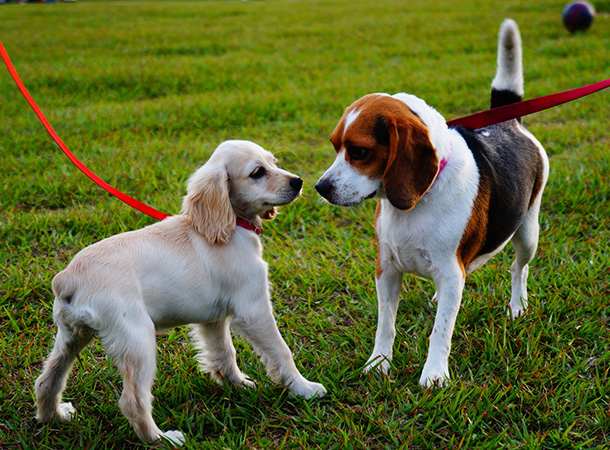
When threatened, dogs freeze their entire bodies. They do this either until a threat subsides, or very briefly whilst deciding to handle the situation via fight or flight.
Faffing
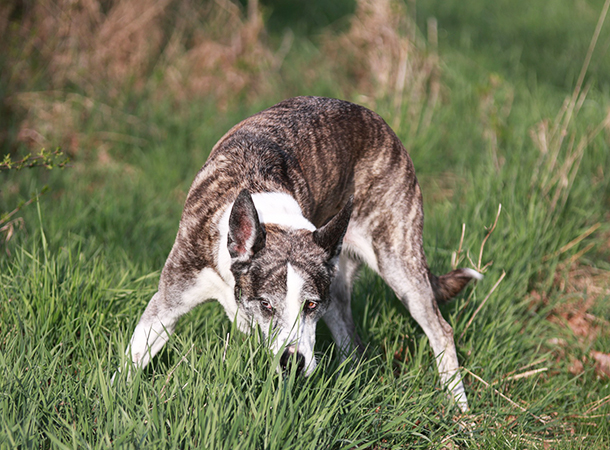
When feeling nervous, such as being approached in the park by another dog, a dog may pretend to sniff a particular area. This is called faffing: the dog’s way of avoiding an uncomfortable situation.
Whale Eye
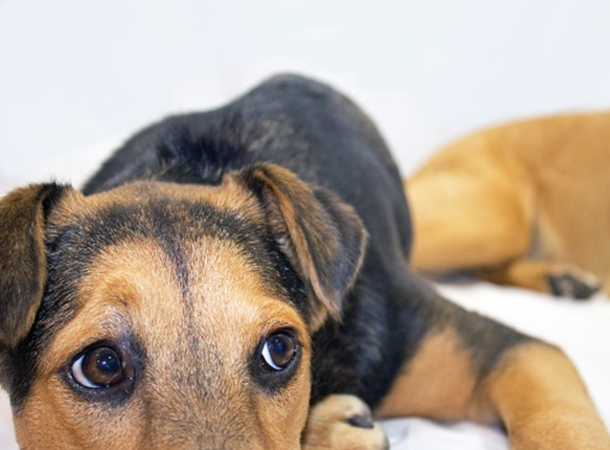
This is when a dog turns away from a possible threat but watches it from an angle, revealing the whites of his/her eyes.
Shaking
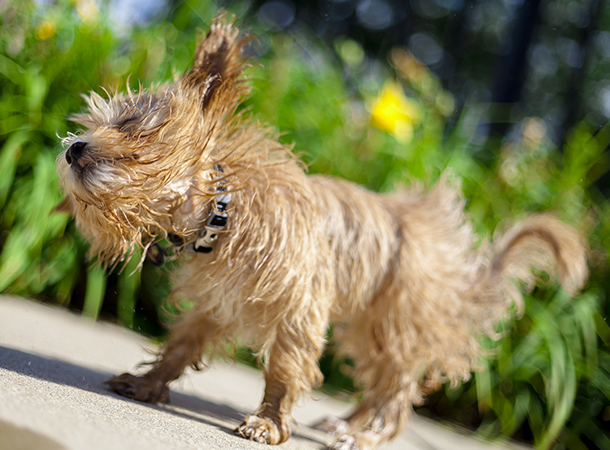
Dogs might shake when nervous to defer the situation. This is caused by the release of adrenaline.
Tense Jaw
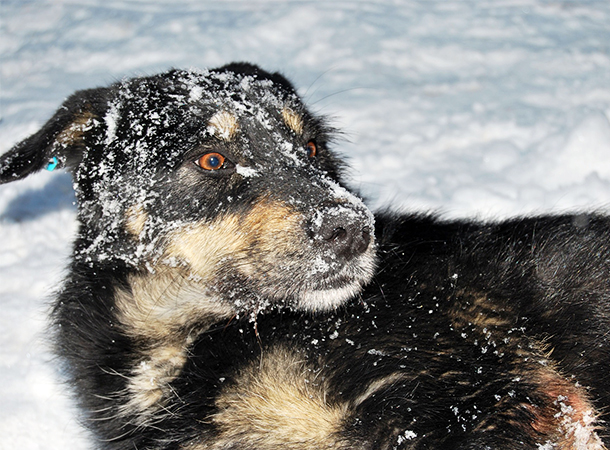
When this happens the dog is, in one way or another, preparing for action.
Turning Away
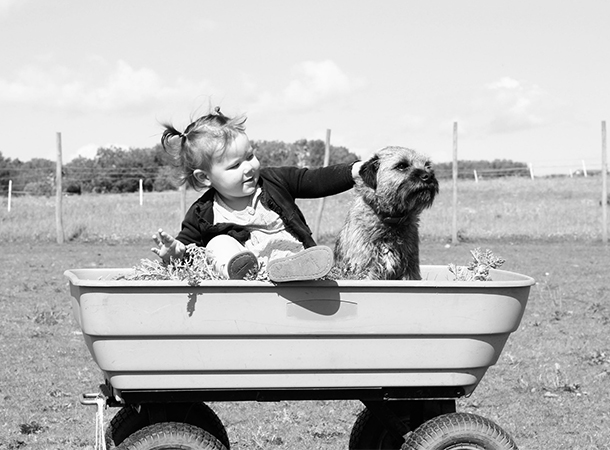
If your dog is in a fearful situation, they could turn away their head as a gesture of appeasement.
Lowered Tail
Another indication that a dog is worried or fearful.
Panting
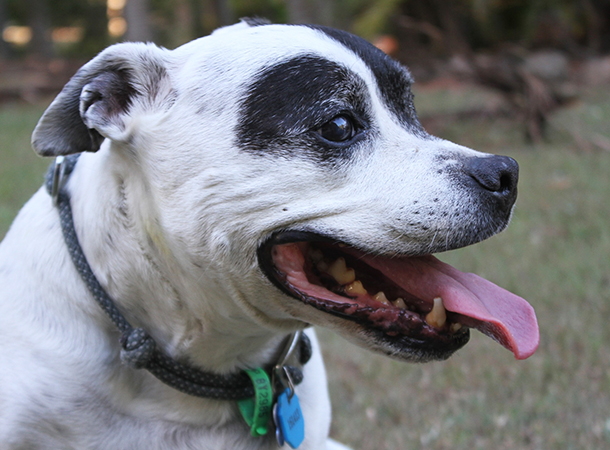
Dogs pant when stressed. This is usually a dry sound as nervousness reduces saliva production.
Learning to understand your dog’s body language can take time. Hopefully this post will help you recognise the most important signs. If you’re worried about any behaviour issues, please don’t hesitate to contact us for further details.